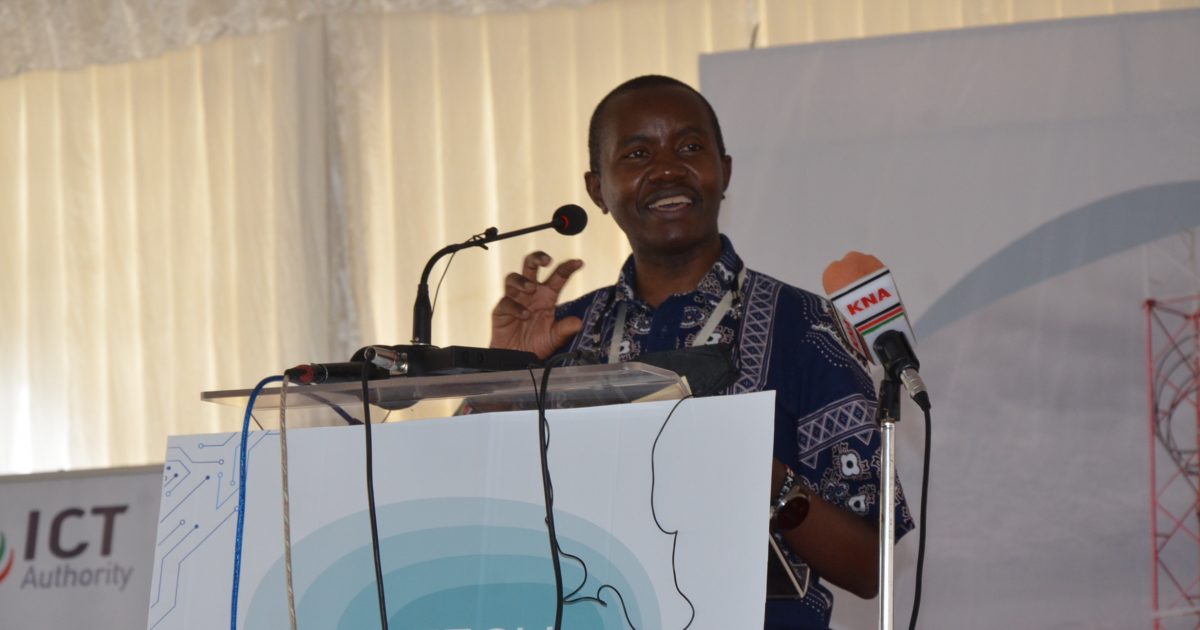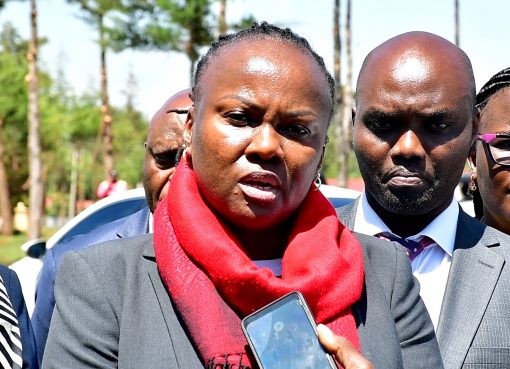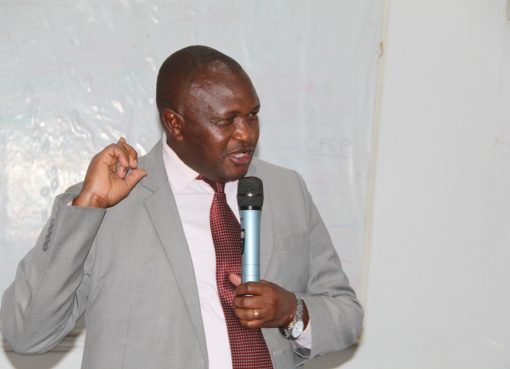The 2,000 new schools that had not been set up when the government launched the Digital Learning Programme in 2015 will get the devices by June 2022, ICT,Innovation and Youth Affairs Cabinet Secretary, Joe Mucheru has said.
Speaking during the launch of the

in Marigima Primary school in Kieni, Nyeri County, Mucheru said the government had put in place plans to address each of the challenges including allocating funds to procure the required equipment, addressing teacher upgrade programme and connecting the respective schools with internet.
“We are aware of the challenges the programme has faced among them lack of internet access to schools to enable content delivery, inadequate training of teachers and high cost of electricity in schools. The government has put up plans to address each of these challenges including reduction of power tariffs for schools and provision of adequate funds for the programme,” Mucheru said.
The SchoolNet Programme will see the government through the Ministry of ICT, Innovation and Youth Affairs, connect both public and private schools to internet services across the country.
The programme will be implemented in four phases and will benefit schools within a radius of 40-kilometres through wireless radio links.
Mucheru noted that the programme was in its second phase of implementation where the Ministry together with other players in the ICT sector intended to supply 1.2 million devices to learners for upper primary.
He said that the programme, which will run until 2024, will see 24,000 public primary and 15,000 secondary schools get internet connectivity as part of enhancing digital learning. The new scheme also factors in special needs schools.
“The programme will run for a period of three years targeting 8,000 schools annually. This will enable learners access content, in a limitless way, from the Kenya Education Cloud,” said Mucheru.
So far, 218,253 teachers have received training on the Competency Based Curriculum, at least 331,000 teachers have been trained on ICT integration and device utilization, while 19,042 public primary schools have been connected to the national grid while another 3,239 public primary schools have been connected to power by solar.
Mucheru also announced plans to install an additional 50,000 kilometres of fiber optic cable to fast track the process. He noted that with the new plans in place government intends to spur industrialization through set up of Surface Mounted Technology manufacturing plants to complement the two assembly plants already in operation at the Jomo Kenyatta University of Technology in Kiambu and Moi University in Eldoret.
“This launch marks the start of the country’s roll out of internet connectivity to public schools and to a large extend homes, villages and rural businesses,” said Mucheru.
Huawei Kenya Chief Executive Officer, Will Meng said that the programme would not only help learners find more resources and better learning methods but it would also improve efficiency amongst the teachers.
The Regional Director UNESCO Eastern Africa Hubert Gijzen, said they were committed to honouring the pledge by Global Education Coalition partners to provide internet access to schools in Africa. He said the move was strategic in ensuring that learning goes on even in the face of a crisis such as the Covid-19 pandemic.
Gijzen noted that the pandemic had exposed the digital gap between the developed and the developing world and challenged other partners to help bridge this gap. He said that UNESCO was jointly working with the ICT Ministry to make distance learning possible for all learners and at all levels even during lockdowns.
“Not everything related to the pandemic is negative; there are positive lessons as well. The pandemic has opened our eyes to see how important ICT is for learning, work and social interactions. We have also seen how ICT can significantly improve the quality of education by providing access to high quality curriculums and also provide effective learning opportunities for those usually left behind learners in rural areas and those living with disabilities,” he said.
While lauding the ICT Ministry for championing digital learning in the country, Nyeri Education CEC, Margaret Macharia, said the county was ripe to embrace technology to help navigate through the demands of the digital world. She said that the best gift that could be bequeathed to the current generation of learners is the early exposure to technology which will help them navigate the digital space.
By Kiamah Wamutitiu, Ann Ngure and Wangari Mwangi





